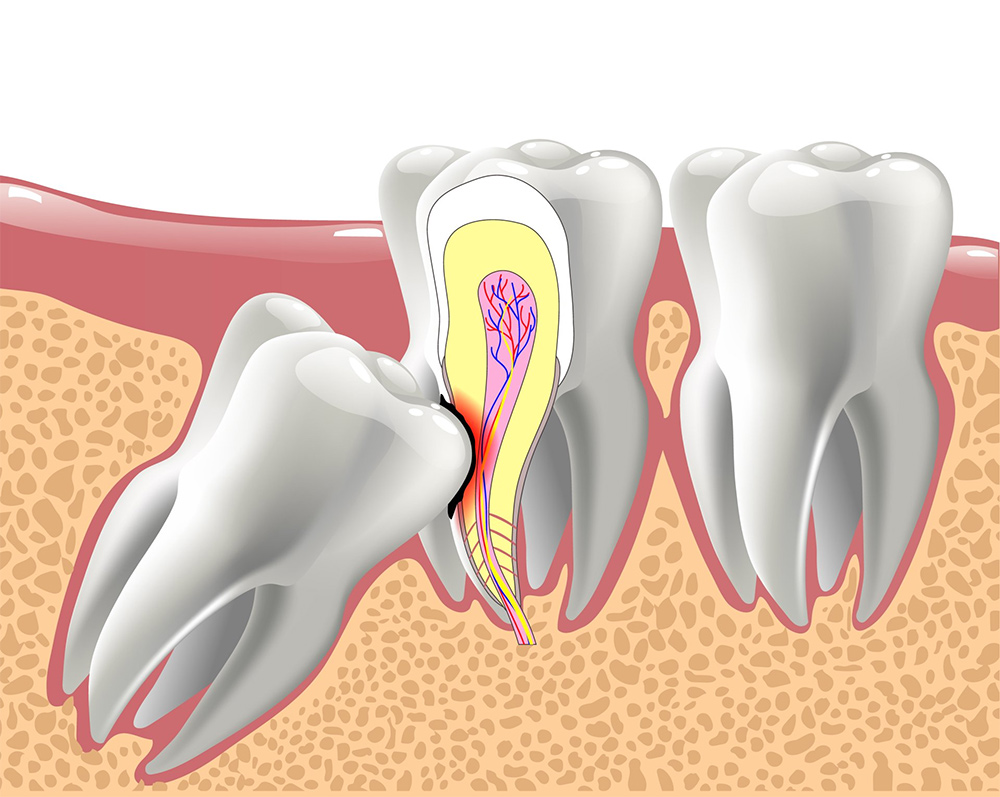Wisdom Teeth Removal Near You

Between ages 16-21, the average adult will have 32 teeth: 16 teeth on the top and 16 teeth on the bottom. However, as adults our mouths are only designed to hold 28 teeth, each tooth having a specific name and function. The teeth in the front of our mouths (incisors, canine, and bicuspid teeth) are ideal for grasping and biting food into smaller pieces. The back teeth (molars) are used to grind food up into a consistency suitable for swallowing. After our molars are our wisdom teeth, and for most of the population, they are an issue and serve no benefit. For most patients, they do not have enough space in their mouths for a new tooth to properly erupt without disturbing their surrounding teeth.
Before these wisdom teeth start to develop into an issue though, we take a preventive measure and have them removed. Typically, this removal is done under sedation, so you will not feel a thing. For those patients who choose to keep their wisdom teeth and not take the preventive measure of having them removed, there could be several issues, including their wisdom teeth growing in sideways, having them only partially erupted, or even remain trapped beneath the gum line and bone, which can be especially painful as they can take many positions in the bone as they attempt to find a pathway that will allow them to successfully erupt.
When wisdom teeth are partially erupted, the opening around them allows bacteria to grow and will eventually cause an infection. The result: swelling, stiffness, pain, and illness. The pressure from the erupting wisdom teeth may start moving your other teeth and disrupt any orthodontic or natural alignment of your teeth. The most serious oral issues occur when tumors or cysts form around the impacted wisdom teeth. Removal of the impacted teeth usually resolves these issues. Early removal is recommended to decrease the likelihood of wisdom tooth complications.
Between 14-16-years old, most patients will have the conversation about their wisdom teeth with either their dentist, orthodontist, or by an oral and maxillofacial surgeon. With an oral examination and x-rays of your mouth, our dentist can evaluate the position of your wisdom teeth and predict if there are any issues present now or may develop in the future. In most cases, the removal of your wisdom teeth is performed under local anesthesia, laughing gas (nitrous oxide), or general anesthesia. These options, as well as the surgical risks (i.e., sensory nerve damage, sinus complications), are discussed with you before the procedure is performed. Before a tooth is removed, we need to evaluate your current oral health. Please keep in mind that if an extraction is required, it is for the benefit of your overall oral health.

